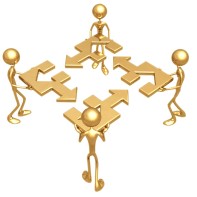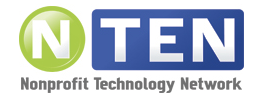 The Chronicle of Philanthropy recently held a chat called “Making Change?: What does it take?” where nonprofit leader, Hildy Gottlieb, lead a conversation with nonprofit leaders on what it takes to make social change a reality. One interesting vein of the conversation turned to the role of collaboration among nonprofits. In response to a question about why nonprofits don’t collaborate more, Hildy responded with:
The Chronicle of Philanthropy recently held a chat called “Making Change?: What does it take?” where nonprofit leader, Hildy Gottlieb, lead a conversation with nonprofit leaders on what it takes to make social change a reality. One interesting vein of the conversation turned to the role of collaboration among nonprofits. In response to a question about why nonprofits don’t collaborate more, Hildy responded with:
“The truth is that organizations don’t work together – people do.”
She then went on to describe how the crux of the problem really lies in the systems that lead organizations to compete against one another for funding, resources, and attention among their constituents. It begs the question of how to rethink systems that actually foster collaboration between people, organizations and entities. We’re glad to say that there are several examples of organizations that are doing just this. Below are some highlighted models of collaboration that help people and organizations work together.
NCTC- National Community Tax Coalition
If organizations plan for their own accomplishments (again the silo thing) they will focus inward. If they plan for what they want the community to look like if they are 100% successful, they will naturally reach out to others, knowing they can’t do it on their own.
-Hildy Gottlieb
NCTC is the largest most comprehensive organization for nonprofits offering free financial services for low income families. As a coalition for organizations that are working on the same issue, there are several ways that they foster collaboration between their members. They offer Working Groups with the goal to “influence the development and position of NCTC’s products” . This gives different nonprofits an opportunity to work on something that is outside of their individual aims. Through real collaboration on projects that will improve the entire system that all the organizations are part of, NCTC manages to bring organizations together into meaningful partnerships.
Land Trust Alliance
So one basic system would be to provide space for people to get to know each other without it being about a grant proposal
-Hildy Gottlieb
The Land Trust Alliance is another organization that works to foster collaboration between various organizations. In this case, it works to support Land Trusts from around the country. One way that they foster collaboration between Land Trust members from around the country, is through their Learning Center. The Learning Center is a complete educational platform for Land Trust owners that shares a lot of information about how to successfully build and run a land trust. Not only that, but they have forums where members can interact with each other and share information on their experiences. By using the internet to share relevant information with their members and building a platform that enables people to share with each other, they have managed to build an online community that fosters collaboration and connection between organizations who may otherwise have seen themselves as competing for the same funds.
These organizations are just two examples of entities that are building systems to encourage collaboration. By having their organizations join around information and engaging members to work for the greater good, they are helping facilitate more collaborative engagement between different groups. If we could find ways to make these practices commonplace in the sector for social good, we’d hopefully get closer to seeing real changes in society’s larger problems.


